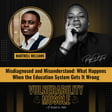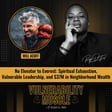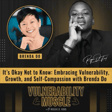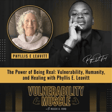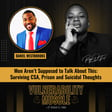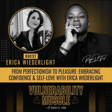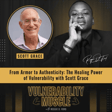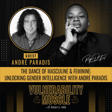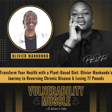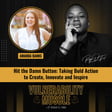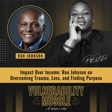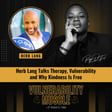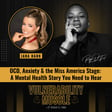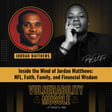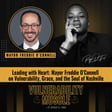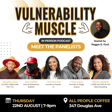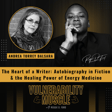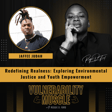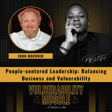
025 - The Vulne-Rebel: From Emotional Numbness to Empowered Authenticity with Marilyn Moore
Join host Reggie D. Ford in an inspiring conversation with Marilyn Moore, a Bronx native living in Brooklyn with a passion for empowering communities. Marilyn shares her journey from numbness to embracing vulnerability, finding strength in motherhood, and advocating for change. As the author of "The Vulne-Rebel," Marilyn's insights delve deep into the complexities of vulnerability and resilience. Through her work as CEO of Divine Appetite LLC, Marilyn is on a mission to bring light to saving the planet, supporting black maternal health, and ending food apartheid. Get ready for an insightful discussion on resilience, community, and the power of vulnerability.
Highlights:
⭐️ Marilyn Moore's diverse roles as a mother, chef, entrepreneur, herbalist, public speaker, birth advisor, and public health advocate.
⭐️ Discover the innovative food education curriculums created by Divine Appetite LLC, along with Marilyn the Chef brand.
⭐️ Marilyn reflects on her journey from feeling numb to embracing vulnerability as a 45-year-old woman from a tough city.
⭐️ Understanding the concept of a "bonus father" and the impact of love language in family dynamics.
⭐️ The conversation explores the exhausting journey of trying to compartmentalize different aspects of oneself to fit societal expectations, and how vulnerability became a catalyst for Marilyn's personal growth and authenticity.
⭐️ Reggie shares his own experience of vulnerability through his book, emphasizing the importance of embracing all facets of oneself, even the ones society deems undesirable.
⭐️ Marilyn opens up about her book "The Vulne- Rebel," sharing real-life testimonies and experiences from her journey of navigating mental health challenges, stigma, and societal expectations.
⭐️ The discussion touches on the intersectionality of race, gender, and mental health, highlighting the importance of destigmatizing seeking help and prioritizing wellness in marginalized communities.
⭐️ Marilyn's journey as a mother and the lessons she imparts to her daughters about self-love, resilience, and embracing their authentic selves serve as a beacon of hope and empowerment for future generations.
⭐️ Through therapy, self-reflection, and community support, Marilyn discusses her journey of healing and self-discovery, offering hope and encouragement to others on similar paths.
⭐️ Marilyn acknowledges the difficulty of trusting others after experiencing trauma, highlighting the importance of building trust in oneself and finding security in personal boundaries.
📲 Connect with Reggie
Instagram - https://instagram.com/reggiedford
Facebook - https://facebook.com/reggiedford
LinkedIn - https://linkedin.com/in/reggiedford
Twitter - https://twitter.com/reggiedford
YouTube - https://youtube.com/@reggiedford
Website - https://reggiedford.com
Book - https://amzn.to/3Y7gBXp
Podcast - https://reggiedford.com/vulnerabilitymuscle
Podcast’s Instagram - https://instagram.com/vulnerabilitymuscle
📲 Connect with Marilyn
IG - @marilynthechef
Book - https://www.barnesandnoble.com/w/the-vulne-rebel-marilyn-moore/1144876347 Website - https://www.marilynthechef.com/
